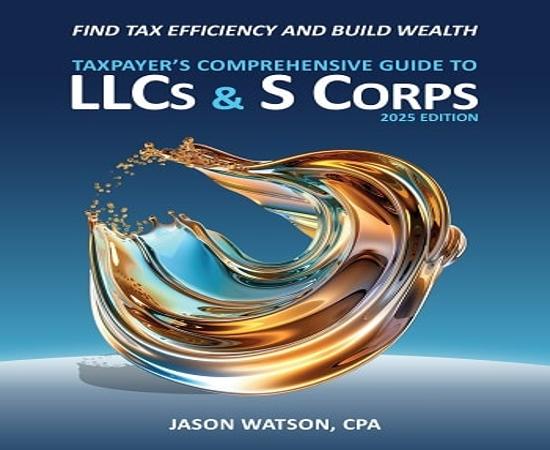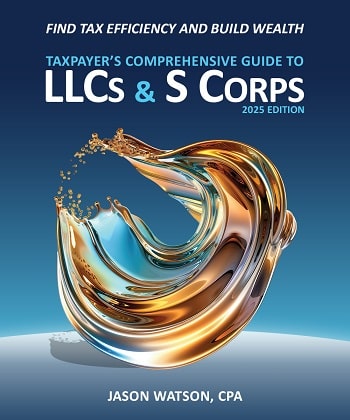Taxpayer’s Comprehensive Guide to LLCs and S Corps: Everything You Need to Know
Are you a taxpayer looking for comprehensive guidance on LLCs and S Corps? Look no further than the taxpayer’s comprehensive guide by Jason Watson. In this article, we will delve into the benefits, key aspects, and frequently asked questions regarding these important tax structures.
The Benefits of Choosing an LLC or S Corp
When it comes to structuring your business, choosing between an LLC and an S Corp can have significant tax implications. Both offer limited liability protection, but they differ in terms of taxation and management flexibility.
LLCs are known for their flexibility and simplicity in terms of management and taxation. They offer pass-through taxation, meaning that business profits are passed through to the owners and are only taxed at the individual level. This can result in potential tax savings for small business owners.
On the other hand, S Corps also provide limited liability protection but are subject to more stringent rules regarding ownership and management. One of the main benefits of an S Corp is the potential for tax savings through the distribution of profits as dividends, which are not subject to self-employment taxes.
Detailed Explanation of LLCs and S Corps
LLCs, or Limited Liability Companies, are a popular choice for small business owners due to their flexibility and simplicity. They offer the protection of limited liability, similar to a corporation, but with the pass-through taxation of a partnership. This means that profits and losses are reported on the owners’ individual tax returns.
S Corps, or Subchapter S Corporations, also provide limited liability protection but are taxed differently. S Corps are considered pass-through entities, meaning that profits are passed through to the shareholders and taxed at the individual level. However, S Corps have strict requirements regarding ownership and are limited to 100 shareholders.
Frequently Asked Questions
1. Can I convert my LLC to an S Corp?
Yes, it is possible to convert your LLC to an S Corp by filing Form 2553 with the IRS. However, there are specific criteria that must be met, including having only one class of stock and meeting the eligibility requirements for S Corp status.
2. What are the advantages of choosing an S Corp over an LLC?
One of the main advantages of choosing an S Corp over an LLC is the potential for tax savings. S Corps can distribute profits as dividends, which are not subject to self-employment taxes. Additionally, S Corps have more structured ownership and management requirements, which can provide clarity for shareholders.
3. Do I need an attorney to set up an LLC or S Corp?
While it is not required to have an attorney set up an LLC or S Corp, it is recommended to seek professional advice to ensure that you meet all legal requirements and understand the implications of your choice of business structure.
4. Can an LLC elect to be taxed as an S Corp?
Yes, an LLC can elect to be taxed as an S Corp by filing Form 8832 with the IRS. This election allows the LLC to be treated as an S Corp for tax purposes while maintaining the liability protection of an LLC.
5. What is the difference between an S Corp and a C Corp?
The main difference between an S Corp and a C Corp lies in their taxation. S Corps are pass-through entities, meaning that profits are passed through to the shareholders and taxed at the individual level. C Corps, on the other hand, are subject to double taxation, where profits are taxed at the corporate level and then again when distributed to shareholders.
In Conclusion
Choosing the right business structure can have a significant impact on your tax obligations and liability protection. The taxpayer’s comprehensive guide by Jason Watson provides invaluable insights into the complexities of LLCs and S Corps, helping taxpayers make informed decisions regarding their business ventures.
For more information on the taxpayer’s comprehensive guide to LLCs and S Corps, visit the official website and order your copy today!


